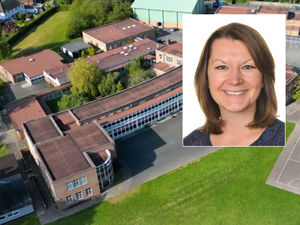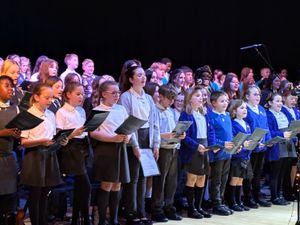Poll: Should teachers wear body cameras to deter bad behaviour by pupils?
More than a third of teachers would be willing to wear a body camera in the classroom, with many wanting the technology to combat misbehaviour by pupils, according to a survey.
Over one in 10 believe the time will come when bodycams will be mandatory in UK schools, the poll found.
The findings came as it was revealed that body-worn cameras are being used in two schools as part of a trial to deal with unruly students.
Tom Ellis, a criminal justice researcher, told The Guardian all classroom teachers in two state secondaries were using the devices during the three-month experiment.
Over a third of teachers (37.7%) said they would be prepared to wear a bodycam in school, according to a Times Educational Supplement (TES) poll.
Of these, 35.1% said their main reason would be to monitor and obtain evidence of student behaviour, while 31.6% said it was for the safety of the teacher or students.
Among those who were not willing to use the technology, reasons included concerns about their own privacy and that of the children, as well as feeling spied on, or the potential for misuse by management.
Around two-thirds of the teachers polled - more than 600 in total - said they would feel safer in the classroom if they knew there was a camera recording everything, while 10.9% said they could foresee a time when bodycams are compulsory.
Mary Bousted, general secretary at the Association of Teachers and Lecturers (ATL), said the union did not support the use of surveillance technology to monitor children and staff.
" All schools should be safe places for pupils and staff," she said.
"The evidence suggests that the best way to ensure children behave well in schools is for schools to have a good behaviour policy which is accepted by all staff and parents and is consistently applied in the school with sanctions all the pupils understand.
"If schools have good behaviour policies they should not have to resort to using body cameras or CCTV. We would not support schools being turned into prisons.
"CCTV can have a useful role in monitoring entrances and exits to schools to prevent strangers gaining access or vandalism, but we do not support their use in schools to monitor children and staff."
Mr Ellis, of Portsmouth University's Institute of Criminal Justice Studies, told The Guardian that teachers at the schools involved in the pilot are being given the option of using the cameras to film "when necessary".
"Most schools now have some level of problems with low-level background disorder in classrooms and the teachers have become quite fed up with not being able to teach," he said
The two schools are not being named so as not to interfere with the trial and parents have been fully informed, Mr Ellis said.
"It's important people realise they are only incident-specific," he added.
"The cameras are not on all the time. Where there is a perceived threat to a member of staff or pupil, for example, they are used. It's not like a surveillance camera."
A Department for Education spokeswoman said the trial is "a matter for the schools".
Daniel Nesbitt, research director of civil liberties group Big Brother Watch, criticised the pilot scheme, saying the schools need to be careful how they use the technology because it " risks turning teachers into snoopers".
The Metropolitan Police began equipping thousands of frontline officers with body-worn cameras in October, with other forces around the country planning a similar roll-out.
A study published last autumn concluded that a n increase in the use of body cameras by police has led to a huge drop in complaints made against officers, research shows.
The University of Cambridge research, which involved four police forces, found a 93% decrease in complaints made against officers clearly wearing the cameras, which record what happens during police incidents, compared with the previous year.




